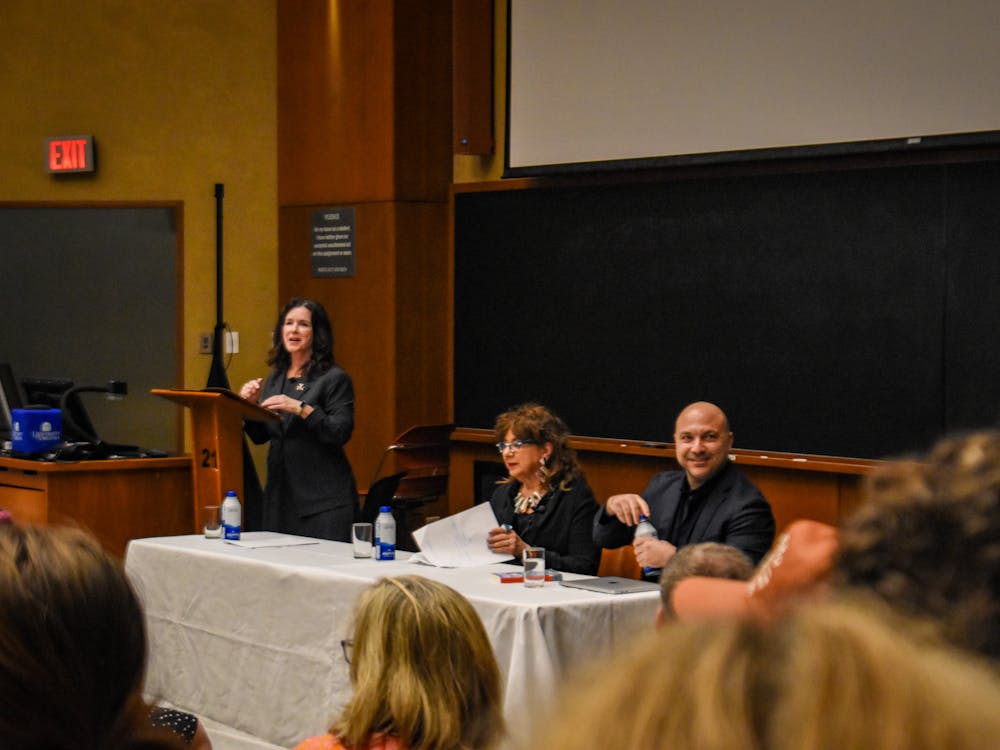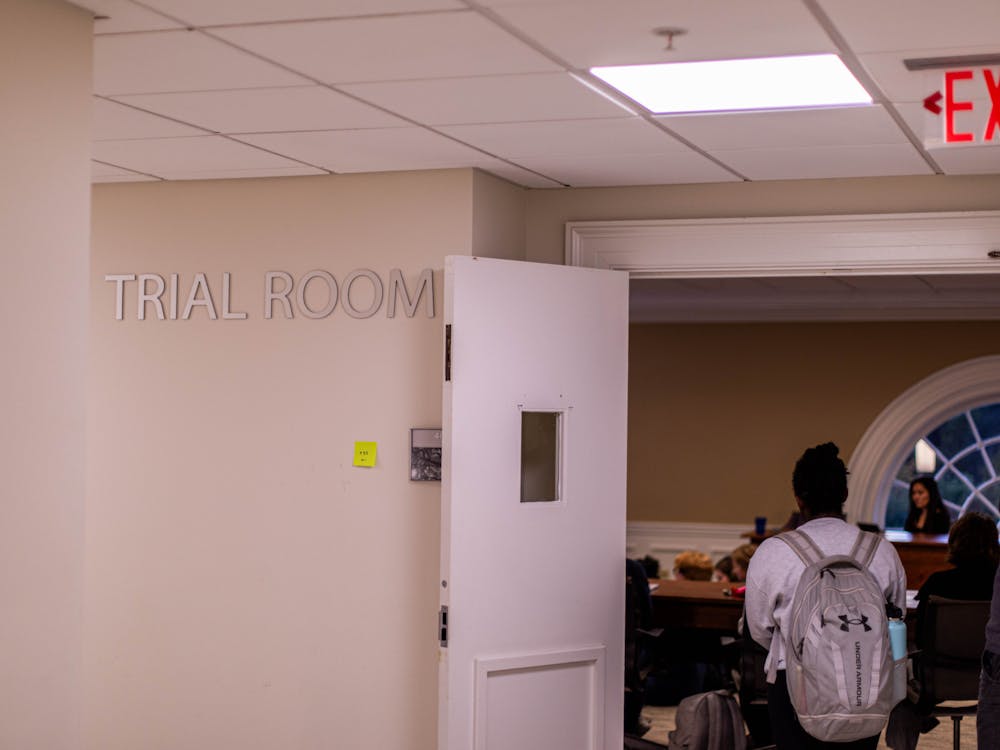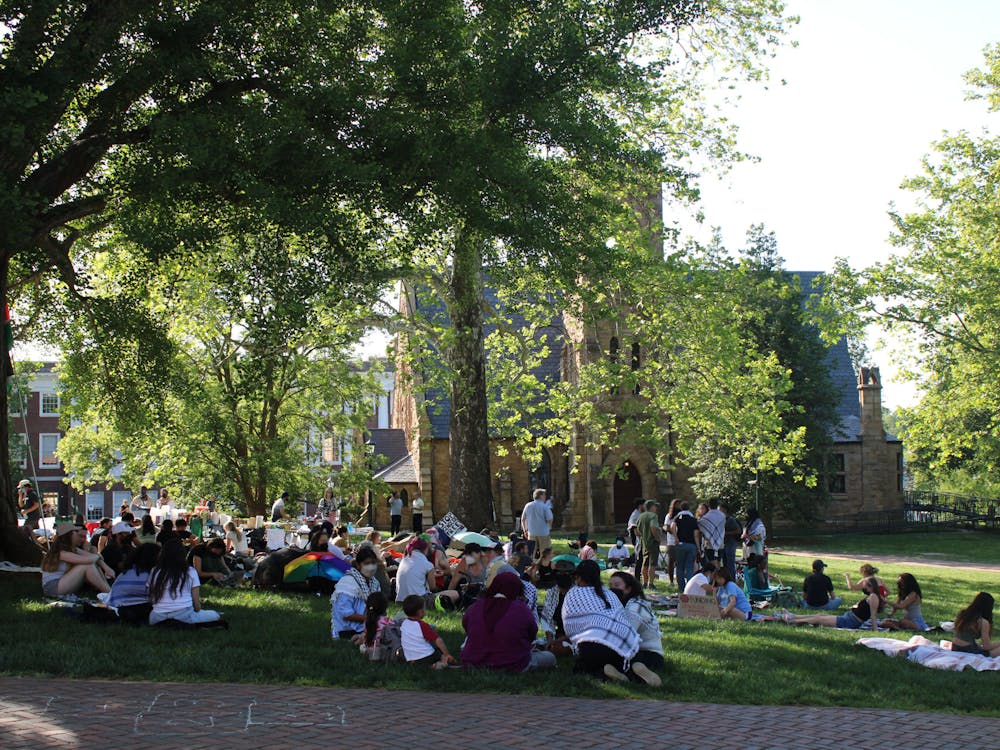Ten weeks into the fall semester, Student Council President John Nelson's administration has broken ground on a number of its initial goals to improve outreach. They have begun this process by integrating new media with a progressively improving organization system.
"Speak up, U.Va."
Student Council recently unveiled Speak Up U.Va., a forum-based Web site which seeks to be both a platform for students to pitch and discuss their ideas and a tool for Council members to gauge student interest in up-and-coming initiatives.
Many committee chairs, including Student Life Committee Co-Chair Aagya Mathur and Student Arts Committee Co-Chair Jenny Smith, use the Web site to collect ideas and to solicit student opinions.
"Speak Up U.Va. is a message board that allows students to voice their concerns at U.Va," Council Chief Technological Officer William Reynolds said. "It's similar to a Facebook wall in structure and you can vote on the different ideas and ... get a sense of priority."
Furthermore, Nelson said the Web site is a place for everyone to communicate and talk about their ideas regardless of their involvement at the University.
"We're trying to use Speak Up U.Va. to reach out to individual students," Council President John Nelson said. "Any student - whether they're involved in activities on Grounds or not - can post ideas and share their concerns and views ... about the University with other students and with Student Council. We really hope to get some good ideas and to learn what's on the minds of students."
Vice President of Administration Nikhil Panda, meanwhile, said nearly all discussion topics are considered - regardless of the number of votes they receive - and feasible ideas are assigned to one of Council's 10 committees. Students also can check back on the site to see updates on any particular idea by checking the appropriate tabs that denote ideas that are currently under review, accepted or completed.
"We want to show that Student Council doesn't operate separate from the University community," Panda said.
About two weeks after Council launched the Web site in late September, Reynolds noted that there had been a large increase in traffic.
"We've seen a sizable increase and we have over 50 ideas posted on the site," he said. "We've had over 1,000 votes cast - every user can cast up to 10 votes - and we've had over 250 independent people vote" within the first two weeks."
Thinking outside the box
As another component of its outreach efforts, Student Council has been in discussion with groups such as the Minority Rights Advocacy Coalition and the Global Student Council to re-evaluate the effectiveness of its own recruiting process, Panda said.
"The MRC wanted to talk to Student Council about the recruitment process to see if that was successful ... in [reflecting] a representative population of the University of Virginia," MRC Co-Chair Neal Fox said. "We're looking at ways they can improve in reaching their goals."
For example, the MRC has worked with Council to see if there are more effective ways to reach out to minority groups who might not have responded strongly to Council's past recruitment techniques, such as through activity fairs, Fox said. One of these new outreach methods would be to work with peer advising groups and similar organizations so they could work with first-year students and talk to them early on in their academic careers, he added.
These are not the only suggestions the MRC has on the table, though.
"There are lots of other things they can do - like co-sponsoring events with a minority committee - which they started doing a lot more this year," Fox said.
Fox praised Council for its willingness to work with the MRC and similar organizations, emphasizing the importance of Council's role to represent the interests of the student body.
"A lot of students at U.Va. feel like their voice is not being heard, so Student Council is supposedly the organization that students have a voice in if nowhere else, so [having] those voices represented [of] those people who may not normally be heard by the University administration is really important," Fox said.
An improvement compared to past years?
Looking back, Student Council seems to have made much progress within its last three administrations in improving outreach with the University community.
Ryan McElveen - who served as Council Chief of Staff with 2007-08 President Lauren Tilton's administration - said the role of Council's relations with the University community - as well as the role of the director of University relations - was at that time still in its developmental stages.
"Student Council up until that point ... had not been good at getting student feedback because we had not used technology in a way that Council is using it now," McElveen said. "It's definitely good that they started this new [Student Council] Web site. Up until now, it had not been that exciting of a place for students to visit, so now that they've created this new spot for input, I think it'll help a lot."
Moreover, the 2007-08 Council had only begun to reach out beyond the most dominant, visible student organizations at the University, McElveen added.
"My year, the committees really started reaching out and getting more student involvement from outside the dominant communities, such as the Greek organizations, and getting more people interested," he said.
The 2008-09 administration of former Council President Matt Schrimper further developed the role of the director of University relations by working to effectively integrate it into Council's organizational structure while using press releases as an important clarifying tool for both media outlets and interested individuals.
"We evolved that position under my administration and we focused on the work [Ethan Jorgensen-Earp, 2008-09 Council director of University relations] could do to coordinate publicity and outreach with both the student body and the University administration," Schrimper said.
The Schrimper administration, in fact, issued press releases to a much greater extent than Council had in any previous administration, McElveen said.
"[There are a] number of things that Student Council does that go unnoticed by the student body or are perceived in a way that's not in line with what we wanted to convey," Schrimper said. "We thought it was a good idea to convey our message to the student body and highlight exactly what we were doing with less of a grey area for confusion."
Jorgensen-Earp said the 2007-08 administration did not effectively use the role of the director of University relations simply because it did not know how to use it. Jorgensen-Earp and the other 2008-09 Council executive board members, however, expanded the role during their term and managed to issue two to three press releases a week for a total of more than 50 by the end of the term.\n"In years before, it was just something they needed, but the administration didn't know how to use it very much, so it became very disorganized," Jorgensen-Earp said.
In retrospect, Jorgensen-Earp said, Student Council could have reached out more to minority groups.
"That was one of our big initiatives," he said. "It wasn't as regulated as we wanted it to be, but with a lot of our groups, especially with safety initiatives, we wanted to coordinate with different organizations ... and find out what their take was, and depending on different cultures, safety could have multiple definitions."
Progress and plans for the future
The current John Nelson administration, meanwhile, has done a number of things to improve outreach from the grassroots level. One of these efforts was the creation of the Marketing and Communications Committee, headed by current Director of University Relations Jen Bristol.
"We're trying to do our best to do a push from the bottom up: more of a groundwork approach through our committee chairs," Bristol said. "We're trying to influence the question of what Student Council does and we're doing our best to focus on our transparency issues."
Panda echoed Bristol's sentiment and added that Council is taking a different approach to outreach than it has in the past.
"Our long-term goal is to promote Student Council from the bottom up through representative projects to show the University community what Student Council is," he said, "instead of preaching from the top."
Nelson added that the current outreach efforts are more multifaceted than they were in the past.
"We're trying to reach out to students and create a dialogue on many different levels and many different avenues," he said.
Moreover, outreach is a common challenge characteristic of universities of this size, Nelson said.
"I think a challenge every year is that there are a lot of projects going on at all times along with ideas that are often disjointed and often shared goals that aren't generating partnerships among students and student groups," he said. "But I think the real challenge is in coordinating those efforts and ensuring that there is a strong dialogue between different students, different student groups and Student Council."
Roshni Malamal Pattiath, the Hindu Students Council chapter coordinator, emphasized the importance of Council's responsibility to trumpet the voices and opinions of the individuals they represent.
"I think it's a great idea that they want to reach out to minority groups who don't have as much clout at U.Va.," she said, "but the truth is I've only seen the need for funding and even that I feel is limited."
Pattiath added, however, that "it's nice to know that they're always there, as well."
She suggested that Council could host a forum to emphasize its mission and the opportunities available. National Pan-Hellenic Council President Isaac Bawuah echoed her views as well.
"As a minority student, I feel like I can speak for a good number of minorities," he said. "Many students aren't aware of Council - and not just who they are but what they do. A lot of minorities don't understand what Student Council [does] outside of what [they read] in The Cavalier Daily."
Bawuah also suggested a more direct approach to outreach.
"Come to people's meetings. Make it a big program to address the 'who, what, when, where' so everyone knows how to get involved and why," Bawuah said. He noted, however, that although NPHC has not had a significant amount of interaction with Council, it is up to contracted independent organizations to take advantage of the resources available.
"The personal interaction hasn't been there per se, but they make themselves known and I feel it's more up to the organizations to make use of those resources," Bawuah said.
Overall, he said outreach efforts must not overlook minority groups and should engage the entire University community.
"Everybody is important and you can't reach out to one organization over another organization," he said. "It's about concentrating on the bigger picture where everybody is important in the social picture of the University community"




